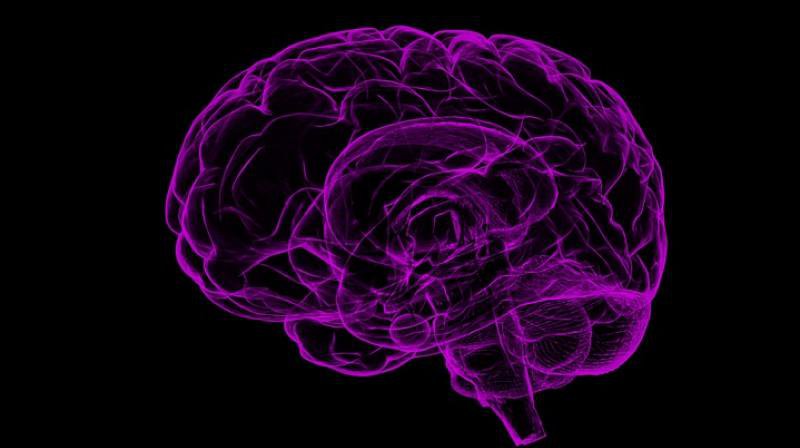Symptoms and causes of ataxia
Article by Master, Doctor Vu Duy Dung - Department of General Internal Medicine - Vinmec Times City International Hospital
Ataxia is a physical symptom on examination and is often associated with cerebellar disease. The causes of ataxia are diverse, so the procedure for cerebellar ataxia often presents great challenges for the neurologist.
1. Overview
The causes of ataxia are diverse, ranging from infectious and immune-mediated to degenerative. In addition, there are also many genetic causes of ataxia. Thus, the procedure for cerebellar ataxia often poses great challenges to the neurologist. In addition, treatment of cerebellar ataxia is often considered ineffective, leaving many patients with ataxia untreated. Furthermore, nonmotor symptoms, such as depression and affective disorder, are common in patients with ataxia and are often overlooked and untreated.
To avoid these challenges in diagnosing and treating patients with ataxia, this article provides a step-by-step approach and an overview of ataxia. This article does not cover ataxia due to stroke, tumor, or multiple sclerosis because the ataxias associated with these lesions are easily identified by neuroimaging and are discussed in other articles.

Trầm cảm có thể xảy ra ở bệnh nhân thất điều
2. Symptoms of ataxia
Ataxia is a physical symptom on examination and is often associated with cerebellar disease. However, abnormal sensory information going to the cerebellum, such as diseases of the posterior column/somatosensory system, can also cause ataxia. Thus, ataxia can have both motor and sensory components, and not all patients with ataxia have cerebellar disease.
The first step in approaching patients with cerebellar ataxia is to recognize gait imbalance, which is often the first symptom in patients with ataxia. Often, the patient will have difficulty getting up and down stairs and will have to hold onto the railing. Other common early symptoms include difficulty running, difficulty walking with high heels or walking barefoot on the beach, and turning to one side. “Can you walk while drunk?” is a useful question, and some patients show sensitivity to small amounts of ethanol. In the late stages of the disease, falls often occur. In the early stages, patients with ataxia sometimes have vision and sometimes turn their heads rapidly. Blurry vision, due to mild and transient double vision, is also common. Stuttering, slurred speech can manifest, making some words difficult to understand. Patients may also lose hand dexterity with poor handwriting and difficulty performing delicate hand movements.
Once symptoms of ataxia are identified, the next important thing is to learn about the time to ataxia progression (acute, subacute, chronic, episodic), which will provide important diagnostic clues .
Although recognizing ataxia is an important first step, the symptoms associated with ataxia often point in the direction of the diagnosis. Therefore, ask questions about peripheral neurologic symptoms, Parkinson's syndrome, sleep disturbances, autonomic symptoms, seizures, hearing loss, and family history of ataxia and problems. Other balance problems are also an important part of taking the history. In addition, a history assessing toxicological and drug exposure will also be helpful in determining the cause.
3. Causes of ataxia
Acute causes of cerebellar ataxia (minutes to days):
Vascular causes: ischemic stroke or cerebellar bleeding Ethanol poisoning Toxic (mercury, thalium, toluene, solvents) soluble) Drugs (phenytoin, carbamazepine, phenobarbital, lithium) Multiple sclerosis Meningitis , especially meningitis in the base of the brain Viral cerebellitis Cerebellar abscess Cerebellar abscess Wernicke encephalopathy/thiamine deficiency Subacute causes of Cerebellar ataxia (weeks to months):
Paraneoplastic cerebellar degeneration Brain tumor Creutzfeldt-Jacob disease Surface iron infection Glutamic acid decarboxylase resistant ataxia

U não gây thất điều tiểu não
Chronic causes of cerebellar ataxia (months to years):
Ataxia with gluten sensitivity Genetic ataxia Mitochondrial disease Multiple systems atrophy Late-onset idiopathic cerebellar ataxia Causes intermittent ataxia of cerebellar ataxia:
episodic ataxia due to genes etiological ataxia Mitochondrial disease Multiple sclerosis... Neurological examination confirmed ataxia. To register for examination and treatment at Vinmec International General Hospital, you can contact the nationwide Vinmec Health System Hotline, or register online HERE.
Source: Kuo SH. Ataxia. Continuum 2019;25(4, Movement Disorders): 1036–1054.
See more Documentation about Ataxia Master Vu Duy Dung:
Symptoms and causes of ataxia Clinical examination, laboratory tests and diagnosis of ataxia Genetic ataxia and degenerative ataxia Treatment ataxia
Symptoms and causes of ataxia Clinical examination, laboratory tests and diagnosis of ataxia Genetic ataxia and degenerative ataxia Treatment ataxia






